
Ishita Sengupta
Ishita Sengupta is an independent film critic and culture writer with a keen focus on nonfiction work. Her writing is informed with gender, pop culture and politics and it has appeared in publications like The Indian Express, The Hindu Frontline, OTTplay among others.
All reviews by Ishita Sengupta

Poetic License
Comedy (English)
Effortlessly Charming
Fri, September 19 2025
In films, the presence of three is inherently fodder. The arrangement can be disruptive, but it is mainly used by makers to arrive at familiar resolutions. In her wonderfully assured directorial debut, Poetic License, Maude Apatow flips the script. She takes three people, resists settling for sweeping endings and shakes things up for fun. It is a lovely detour that is consistently rewarding. Ari (Cooper Hoffman) and Sam (Andrew Barth Feldman) have been friends for a while. As students, their lives have been mostly spent on campus. Things, however, are about to change. The erudite Sam has his eyes set on a finance job, while Ari, the rich young boy prone to wearing LED face masks at leisure, is still trying to figure things out. A poetry class together becomes their latest way of hanging out. But when Liz (Leslie Mann) sits with them in class, their attention to each other wavers a little. There is only one problem: Liz is a married woman with a daughter. Her professor-husband’s new job at the university brings her to a quiet town from Chicago, as she sits with them in a poetry class to audit.

It Was Just an Accident
Drama (Persian)
An Effective Study Of Compassion
Fri, September 19 2025
On paper, It Was Just an Accident bears the blueprint of Panahi’s work where complexity arises from an innocuous incident. A regular pitstop proves to be pivotal. It turns out that the onlooker, Vahid (a wonderful Vahid Mobasseri), has a traumatic history of knowing the man looking for help. In fact, not only does he know him, but so do a lot of people — a wedding photographer, a woman about to get married, a man still traumatised with his past. Turns out, the man in question is an officer of the state who had tortured them when they were in jail. But here’s the catch: no one is really sure. They were blindfolded when they were imprisoned, and although the man (called Eghbal, played by Ebrahim Azizi) sounds and smells like him, and even has a limp, there is uncertainty.
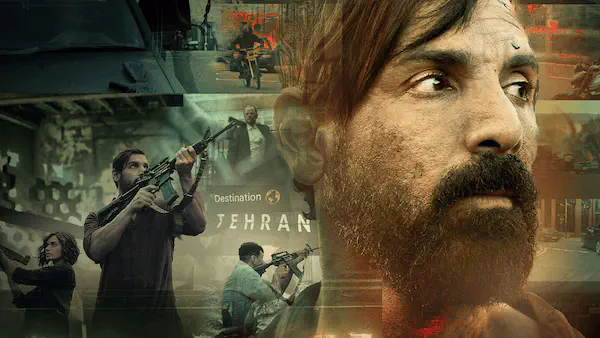
Tehran
Action, Thriller (Hindi)
Tehran Is An Impressive Espionage Thriller With Muddy Politics
Mon, August 18 2025
TEHRAN is the latest John Abraham film, where the actor is out to avenge. For a while, it was the country (Parmanu, Satyameva Jayate); then it became more pointed (in both Vedaa and The Diplomat, he saves a girl). A less obvious, but more definite, shift has been his heroism, which has shapeshifted from a combative force to inner resilience. It has become less showy and more nuanced, more cerebral and less extraneous, much like the nationalism in his filmography. In that sense, Tehran is an able extension of this humanity that props up the ideas of protection without losing sight of the cost. In Delhi, 2012, an Israeli diplomat’s car was bombed. Similar blasts occurred in Georgia and Thailand. But the one which we see in the capital (designed in a sleek shot; Evgeniy Gubrenko and Andre Menezes are the cinematographers) results in an unwitting casualty. A young girl on the street, not much older than the daughter of ACP Rajeev Kumar (Abraham), suffers injury. This pulls him into the case even when he was hesitant initially.
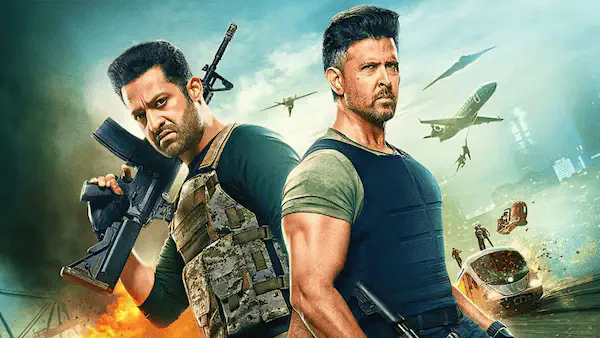
War 2
Action, Adventure, Thriller (Hindi)
More Preoccupied With Slo-Mo Walks Than The Ground Its Heroes Cover
Thu, August 14 2025
Ayan Mukerji’s War 2 is the sixth film in the Yash Raj Spy Universe. It is a precarious position to be in, not least because its prequel, Siddharth Anand’s War (2019) remains objectively fun. A more pressing concern is that through the years — from Kabir Khan’s Ek Tha Tiger (2012) to now — the politics of the setting has altered. India in 2025 is not what it was a decade ago, and the shift has transformed other things. What would be identified as sweeping patriotism in the past runs the risk of being jingoistic now; what would qualify as defending the country now translates to not questioning it.

Sorry Baby
Drama, Comedy (English)
A Sensational Debut By Eva Victor
Tue, August 12 2025
There is such a thing as a Festival Discovery. When you walk into a theatre blind and watch in awe a film taking shape and culminating into everything you wanted to see but did not know. There is such a thing as a film seeing you in a crowd, acknowledging you for what you are and smoothening the jagged edges of what has become of you. Like offering a handshake in the dark. Eva Victor’s Sorry, Baby, which premiered at the Sundance Film Festival, was that film for me. The description on the festival website was vague: “Something bad happened to Agnes. But life goes on… for everyone around her, at least.” It said something and nothing. Something bad happened to Agnes (Victor), the tall, awkward protagonist of the film who lives in a quaint house and is overjoyed every time her best friend, Lydie (Naomi Ackie) visits her from New York. They sit on a couch and collapse into a lived-in comfort of years. You look around and see no one else around. When they meet their other friends from college, Agnes is asked, “Do you still live there?” Her gaze falls and Lydie holds her hand beneath the table. But even she has her own apprehensions. “Don’t kill yourself,” she urges. “I won’t,” Agnes reassures with a certitude that implies that she had considered it.
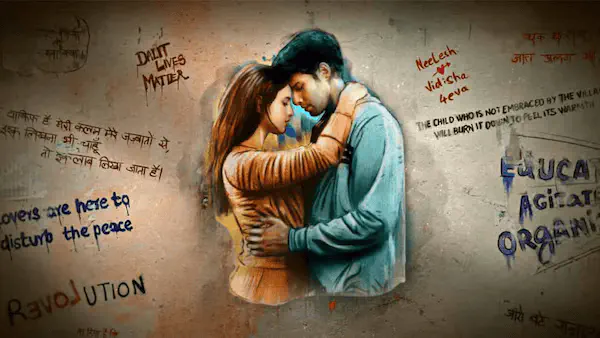
Dhadak 2
Romance, Drama (Hindi)
Shazia Iqbal’s Caste Drama Offers Course Correction
Sat, August 2 2025
SHAZIA IQBAL’S Dhadak 2 stands on dented shoulders. Like its spiritual predecessor, Dhadak (2018) — adapted from Nagraj Manjule’s Sairat (2016) — it too borrows the contours from another language film, Mari Selvaraj’s Pariyerum Perumal (2018). This baffling practice of sharing genesis with acclaimed sources renders the franchise open to closer scrutiny and resistant to unbiased engagement. Observations are accompanied by comparisons, and every question heads in a similar direction: did it improve on the primary material? With the first film, the query was easy to resolve. Shashank Khaitan’s Dhadak reduced Sairat’s caste struggle to a homegrown class difference, making even the impending tragedy feel facile. Iqbal’s film, however, puts forth a more complicated proposition. Hers is a more faithful rendition of the original and by virtue of that, a rare mainstream Hindi film to tackle caste politics with central force. Dhadak 2’s distinction then is reiteration — an audacious task still, reflected in the 19 cuts the film accrued from the CBFC, ranging from blurring of casteist slurs to references to caste. The certification board’s cageyness has the most strident representation in the opening disclaimer that claims everything in the film to be fictional — the city it is based in, the depicted violence, mentions of suicide, etc; the denial is no different from Hindi cinema’s long-standing propensity of looking away from caste-based issues. Emerging from this darkness, Iqbal’s film offers a course-correction.
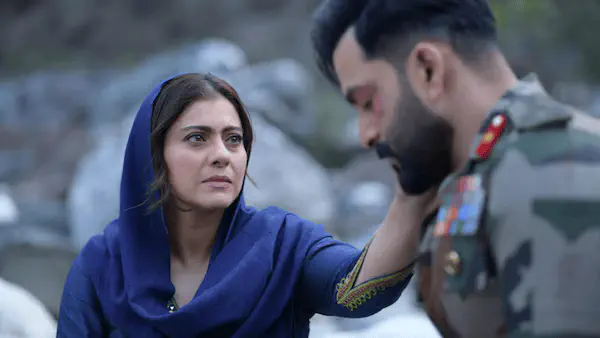
Sarzameen
Drama, Thriller (Hindi)
Ineffective Thriller With No Voice
Mon, July 28 2025
Kayoze Irani’s Sarzameen, comes in the long line of films that sacrifice a decent idea at the altar of inept filmmaking. It is one of those political films that props itself up to make a statement but lacks both the spine and the bite to articulate its politics. Kannan Iyer’s Ae Watan Mere Watan (2024) is a recent example, also backed by Dharma Productions, where the voice of the maker got lost in the chaos of commentary. But if Sarzameen is to be believed, Irani has no voice. This, of course, is not wholly true. Before directing his feature debut, Irani helmed one of the better shorts in the uneven Netflix anthology Ajeeb Daastaans (2021). There was genuine sensitivity on display even when aided by a persuasive cast. Four years since, nothing of that remains. Sarzameen could have been directed by a tree, and I still wouldn’t be surprised. Every frame of the film is dunked in staleness, and the dialogues are woefully clunky, like an AI is talking to another AI.
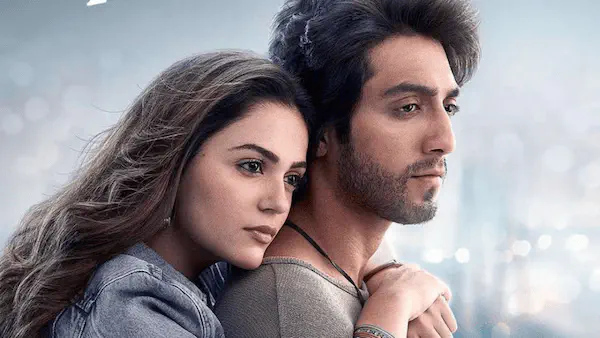
Saiyaara
Romance, Drama (Hindi)
A Star Is Born
Sat, July 19 2025
Great loves look ordinary in close-ups. A man having black coffee because someone he loved liked it; a woman keeping the other side of her bed empty for days. A boy abandoning his future to take care of someone he loves; a girl refusing care to protect the person she loves. These are familiar stories of regular people, more common than one imagines. But there is greatness still, less in the falling and more in the telling, and few filmmakers do it like Mohit Suri. This is not to say that he has always been successful. If anything, the opposite is true. Suri’s filmography is dotted with variations of a similar kind of love story, and in the last couple of years, the balance has been scattered. It has been either too bizarre (Ek Villain Returns), too outlandish (Half Girlfriend) or too morose (Hamari Adhuri Kahani). Individually, these are peak attributes of a Mohit Suri film, and yet it took a while (more than a decade since Aashiqui 2) for things to fall into place, and then — rejoice!
Latest Reviews
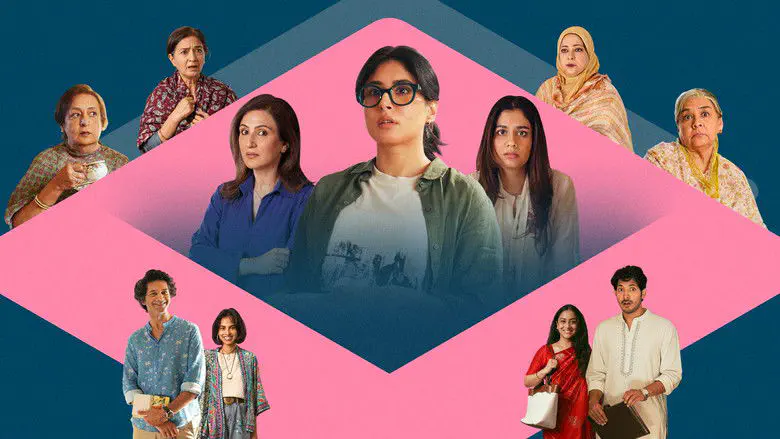

The Great Shamsuddin Family
Comedy, Drama (Hindi)
Set over one day in Delhi, Bani, a writer, is racing against a career-defining 12-hour deadline.… (more)
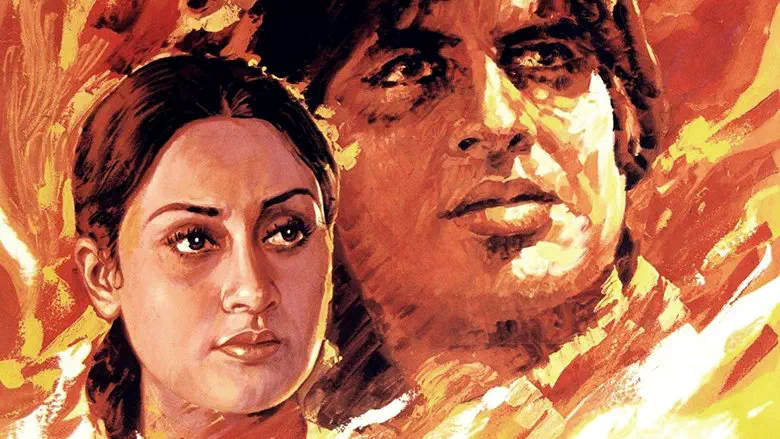
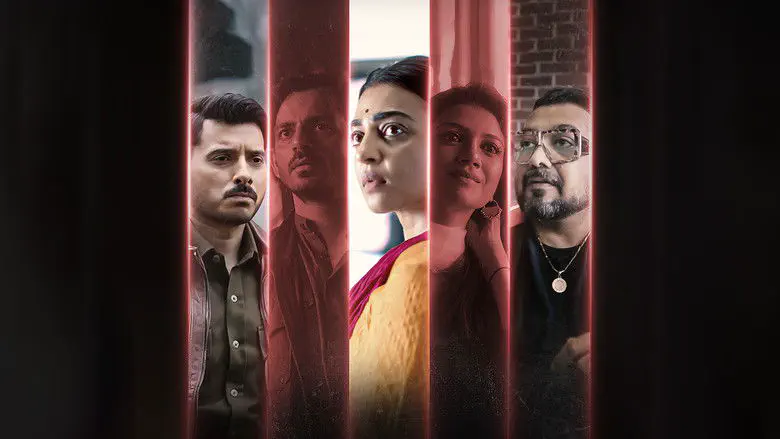
Saali Mohabbat
Drama (Hindi)
A small-town housewife, Smita, is devastated to find her husband and cousin dead. What happens when… (more)


Single Papa
Comedy, Drama (Hindi)
When Gaurav finds a baby in the back of his car, he must defy his eccentric… (more)